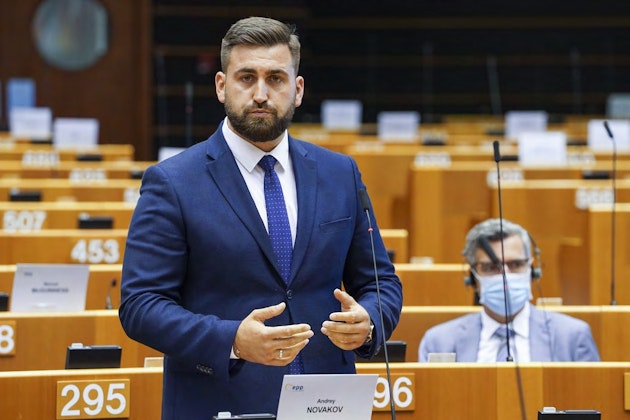3 mins
Rural areas are entitled to the EU's cohesion and crisis response
Rural areas not only represent the smallest building blocks of regional policy but are also subject to unique challenges that require a policy response.
From my perspective, they often fall through the cracks of regional policy, which leads to economic downfall, depopulation and lack of prospects. To add to this, the pandemic made it even harder for public funding to reach rural areas because of the need for emergency response to the crisis elsewhere.
At the same time, lockdowns and teleworking quickly placed rural areas in the spotlight as an alternative to urban centres.
Such trends across the EU are the perfect trigger to shift the EU?s policy focus to rural areas even further. It is also a good opportunity to rethink the role of rural areas in the long-term development of the EU.
"A very significant improvement [to the REACT-EU] was the extra focus on cross-border rural areas"
So far, in my time serving as a Member of the European Parliament, I have had two major opportunities to work on legislation that concerns rural areas: as a co-rapporteur on the Common Provisions Regulation (CPR) and on the Recovery Assistance for Cohesion and the Territories of Europe (REACT-EU) mechanism. These pieces of legislation address two separate funding needs: economic, social and territorial cohesion, and COVID-19 recovery. One of my priorities was to underline the focus on rural areas in the legislative texts so that Member States plan for targeted investments in the EU's villages.
For example, thanks to the will of the European Parliament, the rules governing the EUR 330 billion cohesion policy explicitly say that 'In order to address effectively the development challenges in rural areas, coordinated support from the Funds and the EAFRD should be facilitated. For REACT-EU, the focus on rural areas is also clearly visible: 'Furthermore, Member States should continue to pay special attention to people living in rural, border, less developed, insular, mountainous, sparsely populated and outermost regions, as well as in areas affected by industrial transition and depopulation and, where appropriate, use the REACT-EU resources towards supporting those people.
Most importantly, the provisions are not simply declarative. As a result of these policies, funding for rural areas has to be mentioned explicitly in the partnership agreements under the CPR and in the programme amendments under REACT-EU.
The European Parliament improved the REACT-EU proposal
We had a record short time to finish REACT-EU, while at the same time we wanted it to be a textbook example of recovery through cohesion policy. The agreement of 18 November 2020 between the European Parliament and the Council of the European Union achieved this goal.
The European Parliament managed to negotiate two major improvements to the original European Commission proposal: retroactive eligibility as of 1 February 2020 and selection of operations for support during 2023 (instead of 2022). These changes will improve the use of the funding by allowing the inclusion of implemented measures and by giving more time for implementation.
A very significant improvement was the extra focus on cross-border rural areas: 'As the temporary closing of borders between Member States has led to significant challenges for cross-border communities and businesses, it is appropriate to allow Member States to allocate the REACT-EU resources also to existing cross-border programmes under the European territorial cooperation goal.
How could rural areas benefit from REACT-EU?
Member States could direct REACT-EU funding to rural areas in a few very important fields: teleworking and e-healthcare, healthcare infrastructure, local business support, and short-term work schemes for employees and the self-employed. Such a combination of targeted measures would reduce therisk of people leaving villages in search of better opportunities. At the same time, such investmentsattract young families and professionals, which helps to revive rural areas.
Finally yet importantly, REACT-EU operations have a co-financing rate of up to 100%. This will ease the access of rural areas to REACT-EU because limited local budgets may not provide co-financing for any of the measures.

Andrei Novakov is Member of REGI committee, EPP Group Coordinator, CPR and REACT-EU co-rapporteur
Because I grew up in the Bulgarian village of Momina Klisura, rural areas are close to me, both emotionally and professionally. My personal attachment to those areas complements the legislative work in the Committee on Regional Development.